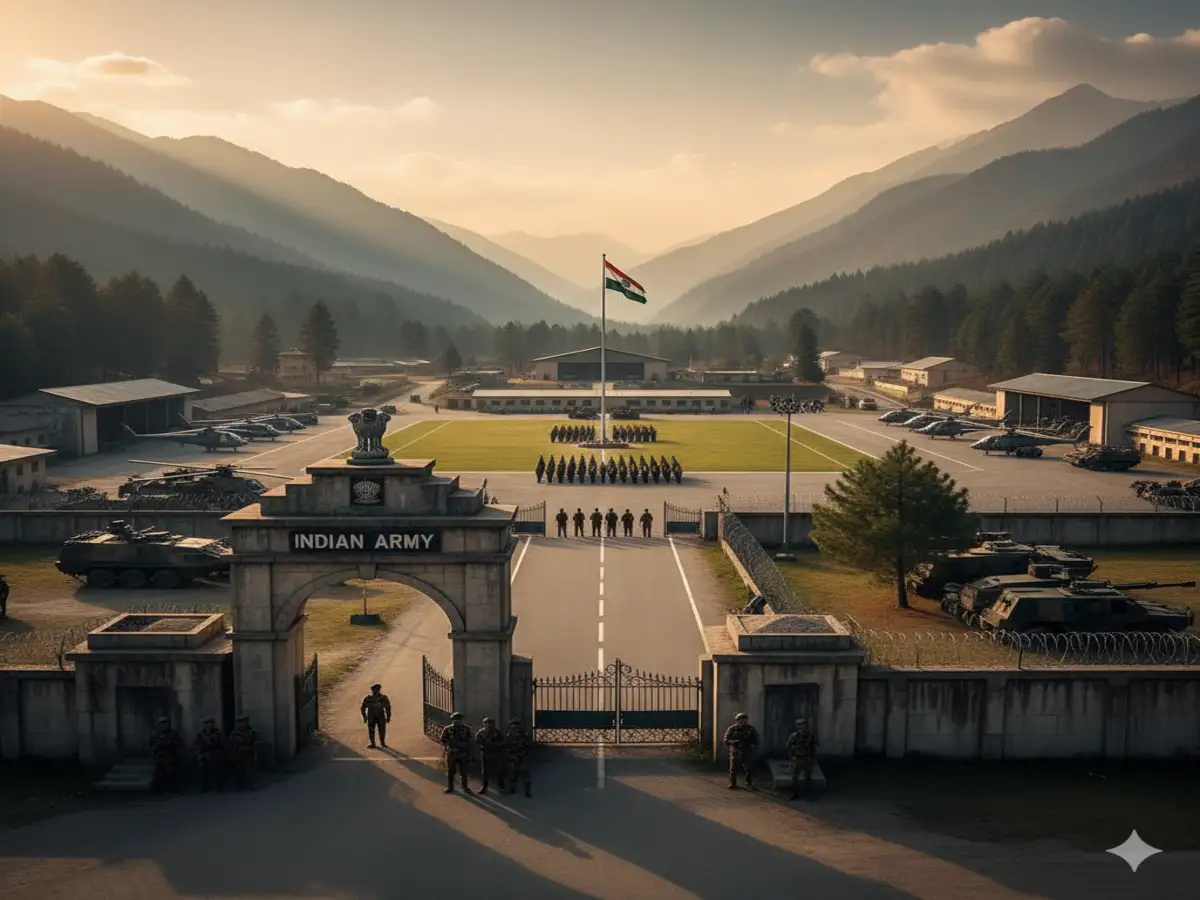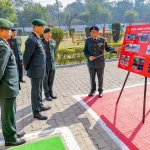In a major boost to India’s north-eastern security architecture, the Indian Army has established a new military base in Assam’s Dhubri district, close to the India–Bangladesh border. Named the Lachit Borphukan Military Station, the installation is strategically located near Bamunigaon — about 40 kilometres from the border — and is expected to significantly enhance border surveillance, intelligence gathering, and rapid response capabilities.
The new facility is the first major Army base in western Assam, positioned close to the critical Siliguri Corridor — India’s narrow and vulnerable lifeline connecting the North East with the rest of the country. Defence experts describe the move as a timely and calculated response to shifting regional dynamics, especially in light of recent developments in Bangladesh following the formation of its caretaker government.
Intelligence sources have indicated signs of growing proximity between Bangladesh and Pakistan, with reports of Chinese activity near the Lalmonirhat airfield, located uncomfortably close to the strategic corridor.
The foundation stone of the base was laid by Lieutenant General R.C. Tiwari, General Officer Commanding-in-Chief, Eastern Command. The station will come under the Tezpur-based IV Corps and will initially house around 1,200 to 1,500 troops. To ensure early operational readiness, pre-fabricated infrastructure is being deployed, with the Assam government facilitating a swift land transfer to the Army.
According to Defence Spokesperson Lieutenant Colonel Mahendra Rawat, the establishment of the Lachit Borphukan Military Station will “enhance the operational capabilities and infrastructure of the Indian Army,” allowing for more effective monitoring of movement across sensitive border zones. He also emphasised that the base will contribute to greater safety and stability for local residents, many of whom have faced cross-border criminal and militant activities.
The new base will host a para-commando unit, underscoring its offensive and reconnaissance role. It will also serve as a regional intelligence hub, integrating human intelligence (HUMINT) and signal intelligence (SIGINT) for countering smuggling, infiltration, and extremist movements across the porous border.
Brigadier Ranjit Kumar Borthakur (Retd) highlighted the growing need for vigilance, noting that “the attitude of the caretaker government in Bangladesh has tremendously hardened against India.” He described recent Bangladesh–Pakistan diplomatic engagements as “worrisome indicators” of regional polarisation.
The Dhubri base is also expected to strengthen command and control redundancy and complement other military facilities in Cooch Behar and Tamulpur, thus expanding the Army’s operational depth in the region.
Assam Chief Minister Himanta Biswa Sarma lauded the project, calling Dhubri a “sensitive district that deserves a strong and permanent military presence.” His government’s close coordination with the Army was praised as an example of effective civil–military cooperation in reinforcing national security.
Beyond its military significance, the Lachit Borphukan Military Station also aligns with Assam’s wider efforts to combat illegal migration, smuggling, and extremist infiltration from across the border.
Named after one of Assam’s greatest historical warriors, the base represents not only a tactical move but also a symbolic commitment to safeguarding India’s territorial integrity. Once fully operational, it will become a key pivot in India’s counter-infiltration and surveillance network, ensuring the security and resilience of the nation’s north-eastern frontier.













